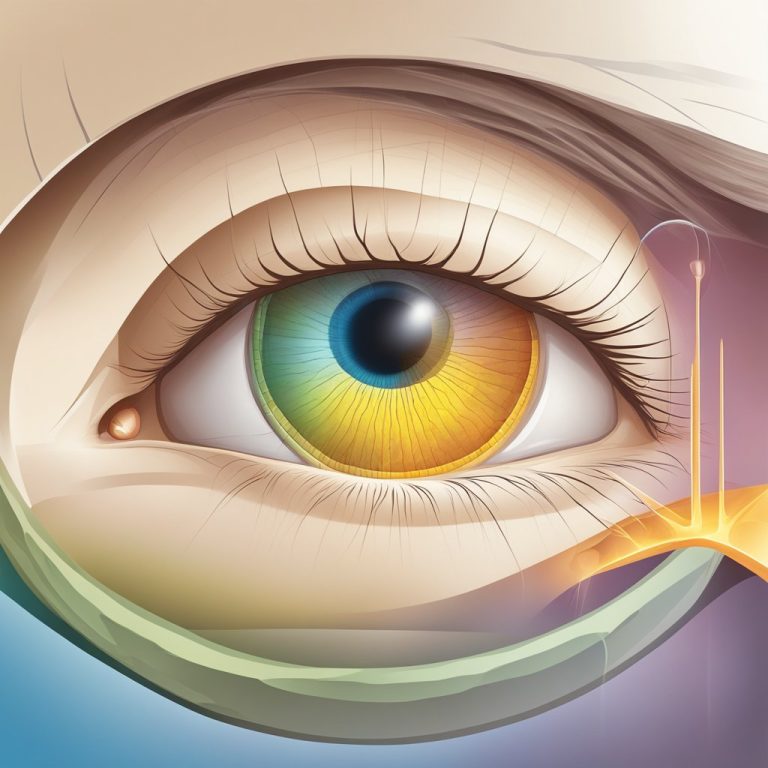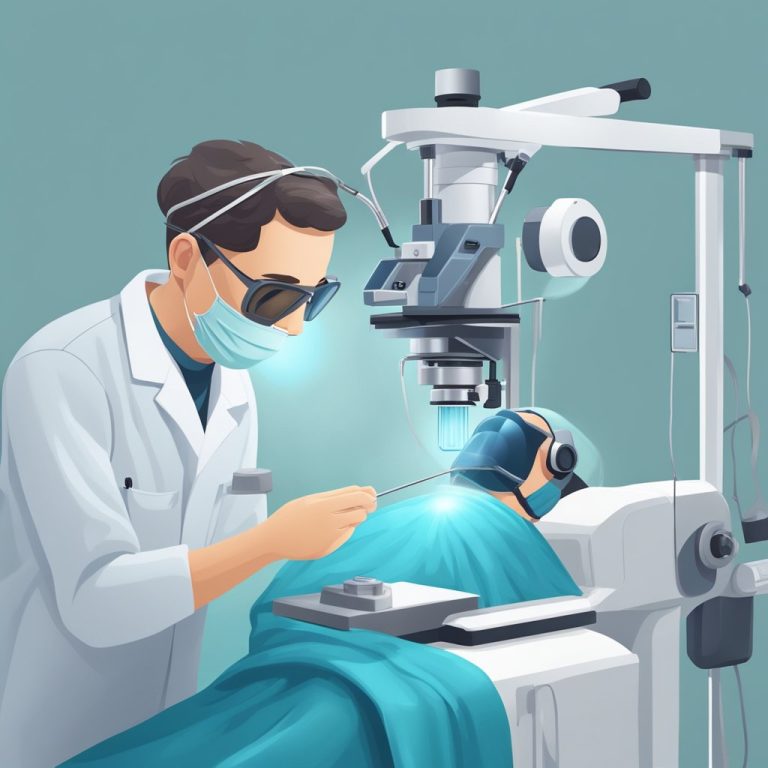Can Dry Eyes Cause Headaches
Can Dry Eyes Cause Headaches?

Dry eyes are a common condition that occurs when the eyes don’t produce enough tears to keep them lubricated. This can cause discomfort, irritation, and even vision problems. In some cases, dry eyes can also cause headaches.
Causes of Dry Eyes
There are many factors that can cause dry eyes. Some of the most common causes include aging, hormonal changes, and certain medications.
Other factors that can contribute to dry eyes include:
- Environmental factors, such as dry air, wind, and smoke
- Medical conditions, such as rheumatoid arthritis, Sjogren’s syndrome, and diabetes
- Eye surgery, such as LASIK or cataract surgery
Symptoms of Dry Eyes
The symptoms of dry eyes can vary from person to person. Some people may experience mild discomfort, while others may have more severe symptoms.
Some of the most common symptoms of dry eyes include:
- Stinging or burning sensation in the eyes
- Redness or irritation
- Blurred vision
- Sensitivity to light
- Eye fatigue
- Difficulty wearing contact lenses
Diagnosis of Dry Eyes
If you are experiencing symptoms of dry eyes, it is important to see an eye doctor for a proper diagnosis.
During your exam, your doctor may perform a variety of tests to determine the cause of your dry eyes. These tests may include:
- A comprehensive eye exam to evaluate your tear production and eye health
- A Schirmer test to measure the amount of tears in your eyes
- A tear breakup time test to evaluate the quality of your tears
Once your doctor has diagnosed your dry eyes, they may recommend a variety of treatment options, including artificial tears, prescription eye drops, and lifestyle changes.
By treating your dry eyes, you may be able to reduce your risk of headaches and other related symptoms.
Headaches and Dry Eyes
If you’ve ever experienced a headache and dry eyes at the same time, you may be wondering if there’s a connection between the two. While there’s no definitive answer, some studies suggest that dry eyes can cause headaches.
Link Between Dry Eyes and Headaches
According to Medical News Today, people with dry eyes may experience headaches due to the strain on the eyes.
When your eyes are dry, you may blink less often, leading to eye strain. This strain can cause tension headaches or migraines. Additionally, dry eyes can cause inflammation, which can trigger headaches.
Types of Headaches Related to Dry Eyes
There are different types of headaches you may experience if you have dry eyes.
One type is a tension headache, which feels like a constant ache or pressure on your head. Tension headaches can be caused by eye strain due to dry eyes.
Another type of headache related to dry eyes is a migraine.
Migraines are often accompanied by sensitivity to light and sound, nausea, and vomiting.
According to Healthline, some people with migraines also experience dry eyes. Researchers believe that dry eye may be a type of allodynia in people with migraine.
Treatment and Management
Dry eyes can be a chronic condition that requires ongoing treatment and management. There are different medical treatments and lifestyle adjustments that can help alleviate symptoms.
Medical Treatments for Dry Eyes
If you have severe or persistent dry eyes, your doctor may recommend medical treatments such as:
- Artificial tears: These are lubricating eye drops that can help moisturize your eyes and relieve dryness. There are different types of artificial tears available, so your doctor can recommend the one that is best for you.
- Prescription eye drops: If artificial tears are not effective, your doctor may prescribe eye drops that can help reduce inflammation and increase tear production.
- Punctal plugs: These are tiny devices that can be inserted into the tear ducts to block drainage and keep tears on the surface of your eyes longer.
- Meibomian gland expression: This procedure involves applying pressure to the glands that produce the oily layer of your tears to help improve the quality of your tears.
Lifestyle Adjustments to Alleviate Symptoms
In addition to medical treatments, there are lifestyle adjustments that can help alleviate dry eye symptoms. These include:
- Blinking more often: When you blink, your eyelids spread tears over the surface of your eyes, which can help keep them moist.
- Using a humidifier: Adding moisture to the air can help prevent your tears from evaporating too quickly.
- Avoiding dry environments: Try to avoid environments that can make your eyes dry, such as windy or air-conditioned spaces.
- Taking breaks from screens: Staring at a screen for long periods of time can cause you to blink less often, which can lead to dry eyes. Take breaks every 20 minutes to rest your eyes.
- Wearing wraparound sunglasses: These can help protect your eyes from wind and dry air when you are outdoors.
Prevention Strategies
Dry eyes can cause headaches and eye strain, but there are several prevention strategies that you can adopt to reduce the risk of developing these symptoms. Here are some of the most effective prevention strategies:
Environmental Factors
Environmental factors can play a significant role in causing dry eyes and headaches. To prevent these symptoms, you should:
- Keep the air in your home and office humid. Dry air can exacerbate dry eyes and cause headaches. A humidifier can help keep the air moist and reduce the risk of developing these symptoms.
- Avoid exposure to smoke and other irritants. Smoke, dust, and other airborne irritants can cause dry eyes and headaches. If you smoke, consider quitting. If you are exposed to smoke or other irritants at work, wear protective gear such as goggles or a mask.
- Take frequent breaks when using a computer or reading. Staring at a computer or reading for long periods can cause eye strain and dry eyes. To prevent these symptoms, take frequent breaks and look away from the screen or book.
Eye Care Best Practices
In addition to environmental factors, adopting good eye care practices can help prevent dry eyes and headaches. Here are some eye care best practices:
- Use artificial tears. Artificial tears can help lubricate the eyes and reduce the risk of developing dry eyes and headaches. Use them as directed by your doctor or pharmacist.
- Blink frequently. Blinking helps to spread tears over the surface of the eye and prevent dryness. Make a conscious effort to blink more often, especially when using a computer or reading.
- Maintain proper eye hygiene. Keep your eyes clean and avoid touching them with dirty hands. This can help prevent infections and other eye problems that can cause dry eyes and headaches.
When to See a Doctor
If you experience dry eyes and headaches frequently, it is essential to see a doctor. An eye doctor or optometrist can examine your eyes and determine if you have dry eye syndrome or another eye condition that may be causing your headaches.
According to Healthline, dry eyes and headaches can have common triggers and occur together. If you are experiencing both symptoms, it is important to get a proper diagnosis from a medical professional.
Your doctor may recommend over-the-counter eye drops, prescription medications, or other treatments to help alleviate your symptoms.
They may also suggest lifestyle changes, such as taking frequent breaks from screens, using a humidifier, or avoiding dry environments.
Frequently Asked Questions
How can dry eyes lead to headaches?
Dry eyes can lead to headaches because they make your eyes more sensitive to light and affect your ability to focus. These symptoms can cause tension headaches or migraines, which can be triggered by eye strain.
What is the connection between dry eyes, headaches, and neck pain?
Dry eyes, headaches, and neck pain are all symptoms of tension headaches or migraines. When your eyes are dry, you may find it more difficult to focus, which can cause you to strain your neck and shoulders. This tension can lead to headaches and neck pain.
Can experiencing dry eyes result in tension headaches?
Yes, experiencing dry eyes can result in tension headaches. Dry eyes can make your eyes more sensitive to light and affect your ability to focus. These symptoms can cause tension headaches or migraines, which can be triggered by eye strain.
Is there a link between dry eyes and experiencing dizziness or pain behind the eyes?
Yes, there is a link between dry eyes and experiencing dizziness or pain behind the eyes. Dry eyes can cause discomfort, irritation, and inflammation in your eyes. This can lead to symptoms such as dizziness or pain behind the eyes.
What are effective treatments for headaches caused by dry eyes?
Effective treatments for headaches caused by dry eyes include using eye drops, taking breaks from screen time, using a humidifier, and practicing good eye hygiene. You can also try using warm compresses on your eyes to help relieve dryness and inflammation.
How can you tell if your headache is related to dry eye syndrome?
If you are experiencing headaches along with symptoms such as dryness, irritation, or inflammation in your eyes, your headache might be related to dry eye syndrome. It is best to consult with an eye doctor to determine the cause of your symptoms. Then, you can develop an appropriate treatment plan.






